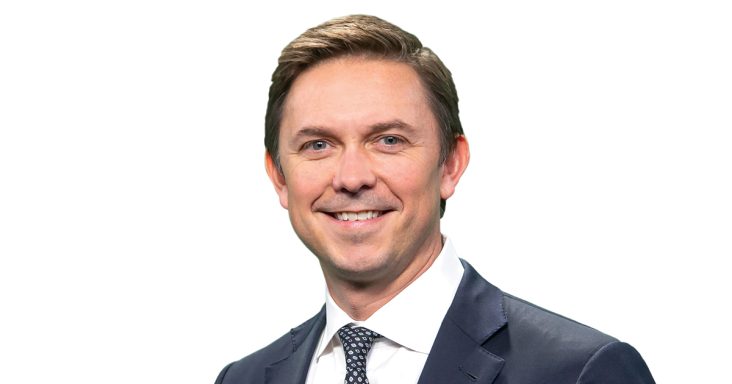Bank executive sees real estate market adjusting to higher interest rates
by September 26, 2023 12:04 pm 1,665 views

Davy Carter is the regional president for Centennial Bank overseeing Jonesboro and Northeast Arkansas operations. A banker with more than 20 years experience, he has witnessed a few economic downturns and rebounds.
He also sits on the Memphis board of governors for the Federal Reserve Bank of St. Louis, which monitors conditions in the Northeast Arkansas region of the state.
In an interview with Talk Business & Politics Editor-in-Chief Roby Brock, Carter offered his observations on what he’s seeing in the marketplace and what he foresees on the horizon.
TB&P: What are you seeing in terms of real estate market conditions right now in Northeast Arkansas and Jonesboro?
Davy Carter: Jonesboro and Northeast Arkansas are still doing well. The commercial real estate market is pretty resilient up here. The big developers that I know are telling me it’s just harder, there’s still a lot of activity, a lot of discussion, a lot of interest, et cetera, but it’s just harder. It just seems harder for them to get from A to Z, meaning not putting things together and getting things across the finish line for whatever reason. Interest rates certainly affect the capital stack and return that investors are looking for. Debt payments are higher and all those things. Couple that with higher prices and sometimes these things are harder to work.
TB&P: What are you seeing on the brokerage side? Is there strength from consumer spending to keep pushing for services expansion projects and things like that?
Carter: On the brokerage side, the region is still very active. New projects from the ground up, they’re still moving, but it’s just moving slower. It’s just taking a lot more effort to get them done. Perhaps the consumer has been the bright spot of all this economic data over the last handful of months. The Fed has said recently that the risk is about balance now, whether to keep moving or stopping. I think it’s just getting harder to decide, taking all this data, which way this thing is going. But consumers appear to be very healthy still today.
TB&P: Let’s talk about those higher interest rates. They look like they’re going to be here for a significant period of time. Do you find that the market is adjusting to those higher interest rates or do you think that it is killing some deals?
Carter: I think the market is slowly adjusting to interest rates, but they are slowing down a lot of deals. At the end of the day, these rates have made it very difficult for big projects to put the capital stack together. When an investor can go get 5.5%, 6% pretty much risk-free with rates where they are, you’ve got to weigh that against how much risk you’re taking and what kind of return you’re going to get on new development projects. On the little things that are already up and going, the value of those properties have declined as well because of the rising interest rates. So I think we’re certainly seeing a slow down on the commercial side.
On the residential side, it’s a little bit harder because supply and demand is still out of balance. We still have a shortage of housing, and that’s a little bit different analysis, but 7%+ mortgage rates have an effect on buying as well. So the Fed will tell you that’s supposed to be the outcome here. They’re trying to slow things down to get things back to normal pace. I think that’s what we’re seeing. But overall, I want to emphasize things still seem to be going very well, even in light of the higher interest rates.
TB&P: Where do you think the real estate market will be in January of next year?
Carter: I have been in the account that believes that rates are going to be higher for longer. I never have bought into this idea that the Fed is going to go through all of this and then suddenly start lowering rates. I just don’t believe that. So I think we’ll have higher interest rates for longer. I don’t think they’ll go much higher, but I think that they are here for awhile and the market will adjust to that.
Historically, these interest rates really aren’t that high. They seem high because we’ve been at historical lows, but they’re not that high when you go back and look at the economic history of our country. So next year, I think the market’s going to adjust. There will be some hiccups along the way, but I think everything’s going to be fine and we’ll keep marching on.
TB&P: There will still be deals to be made. There’s still a way to make projects work, is that what you’re saying?
Carter: Yes. It’s just people have to adjust. The market will adjust to these rates at the end of the day. Right now, it just takes more equity to make things work. You’ve got a lot of people and a lot of money that are sitting on the sidelines waiting for some opportunity to deploy their equity in this environment. I think that’s in part what we’ll see next year.
